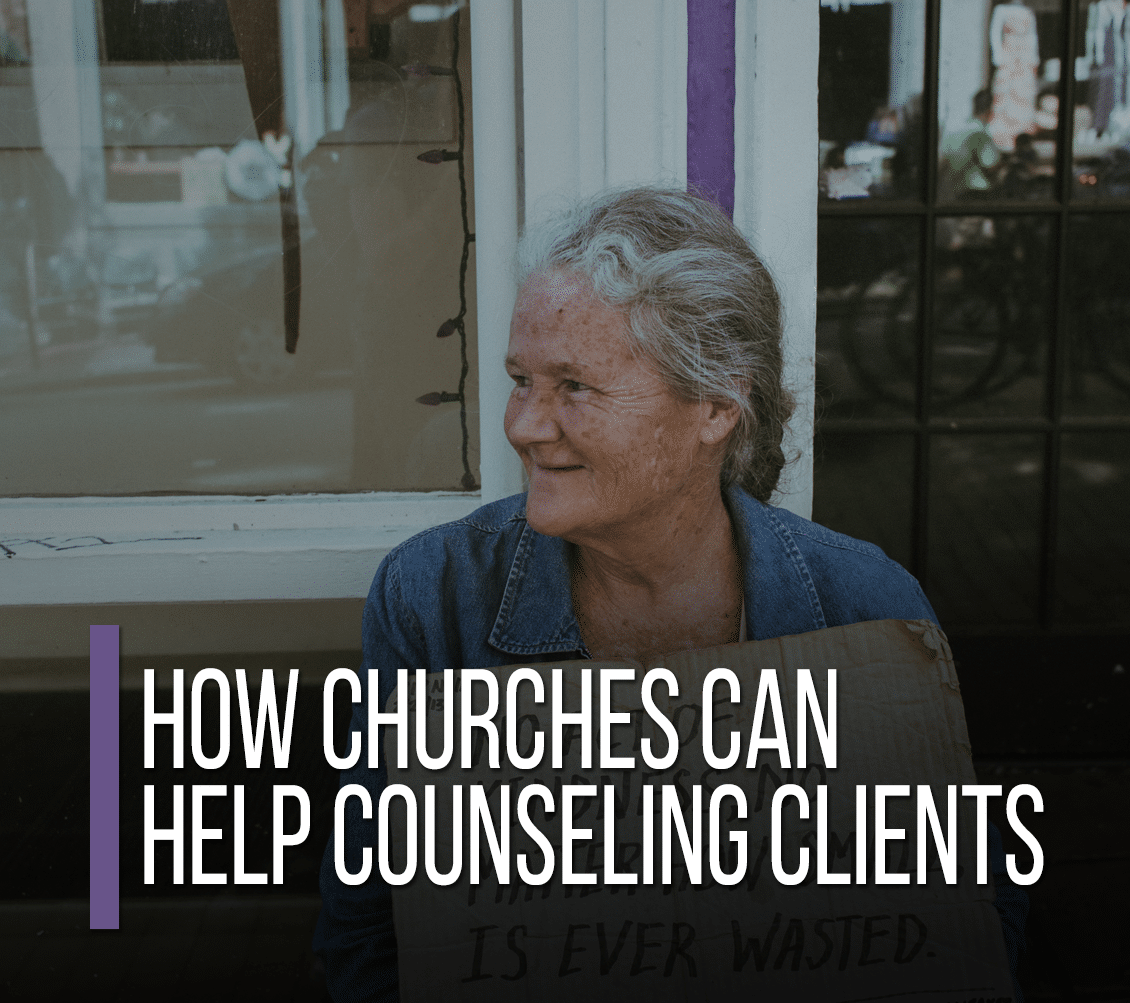The Church and mental health professionals have a common group of people. If we took the two populations of each and put them in a Venn diagram, there would be overlap with those who are hurting, lonely, and struggling.
Counseling is specifically looking at how to help people work on their own concerns with data-driven psychology and professional care. The Church has been and will always be focused on sharing the Gospel, loving one another, and providing a hopeful community to the marginalized.
Two Types Of Support
Within this overlap, I see two areas of support only the Church can fill. The first we have already talked about quite a bit: spreading awareness. The Church has influence and an audience, a pulpit, and so many other resources. I won’t continue to drone on with how to do it, but please advocate and educate others.
The second type of support the Church has is to meet the basic needs of individuals. In psychology, the foundational ideas are based on Maslow’s Hierarchy of Needs. While you can certainly argue the premise of the ideology, the details of the original data, or how we should look at self-esteem and self-actualization, it really is true we have basic and foundational needs to be met. I really do believe we can seek out spiritual beliefs even at the physiological and safety levels. In fact, many find themselves in prayer and Scripture that encourages and endorses this.
Not sure what Maslow’s Hierarchy of Needs are? Check this video about it:
What Needs Could The Church Meet?
Because counselors have very limited resources to work with individuals, finding out how someone can move beyond their problems and resolve negative behaviors, we cannot do it all. The Church is the perfect partner and this is how the two entities can collaborate.
If you need some ideas, here are a few ways the Church could work with CEOs and Directors of counseling agencies.
- Offer short-term housing with case management services.
- Feed the homeless and meet clothing needs of children and adults.
- Offer skills training and development for employment.
- Collaborate with Habitat for Humanity or Salvation Army.
- Provide locations to house AA, NA, or Celebrate Recovery.
- Provide resources for hygiene.
- Educate, train, and lead your community in foster care, supporting Child Protective Services, and domestic violence shelters.
- Train all leaders and volunteers on suicide awareness as well as mental health resources.
- Provide after-school resources for children and teens along with childcare for low-income working families or single-parent mothers.
- Collaborate with probation or local law-enforcement with sex offenders, successful rehab patients, or other heavy need clients.
- Pay for treatment of congregation members to attend counseling.
- Have a mental health team that gives prayer, support for local crisis hotline, or other community supports.
- Be part of fundraising agencies like United Way that fund community mental health and substance abuse programs. Make policy changes in local government too.
This is just 10 minutes of brainstorm without the collaboration of hearing from other people. I’d love to hear what you have to say on the topic. Share ideas of how your church has offered support or ideas that you want to see
